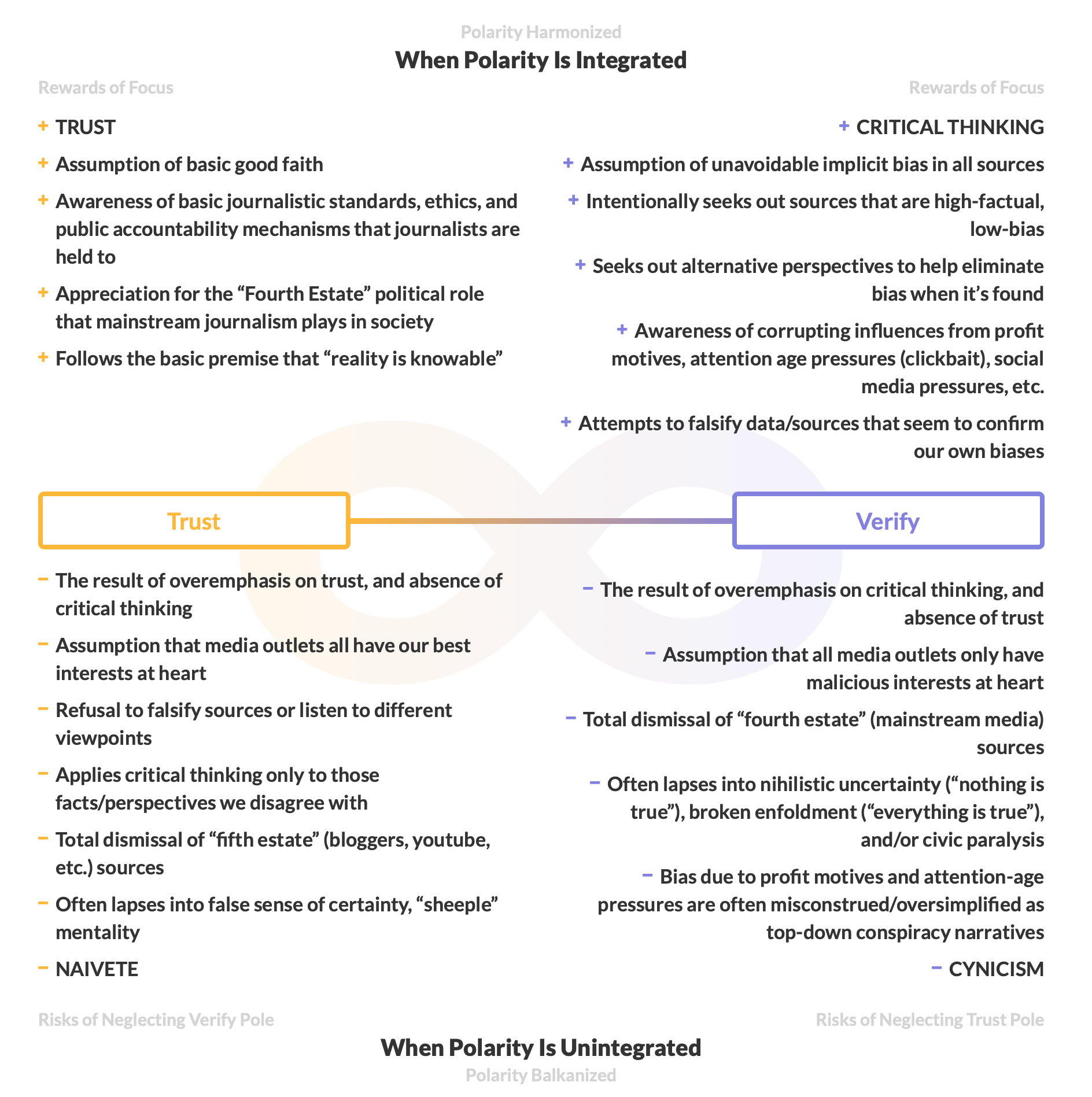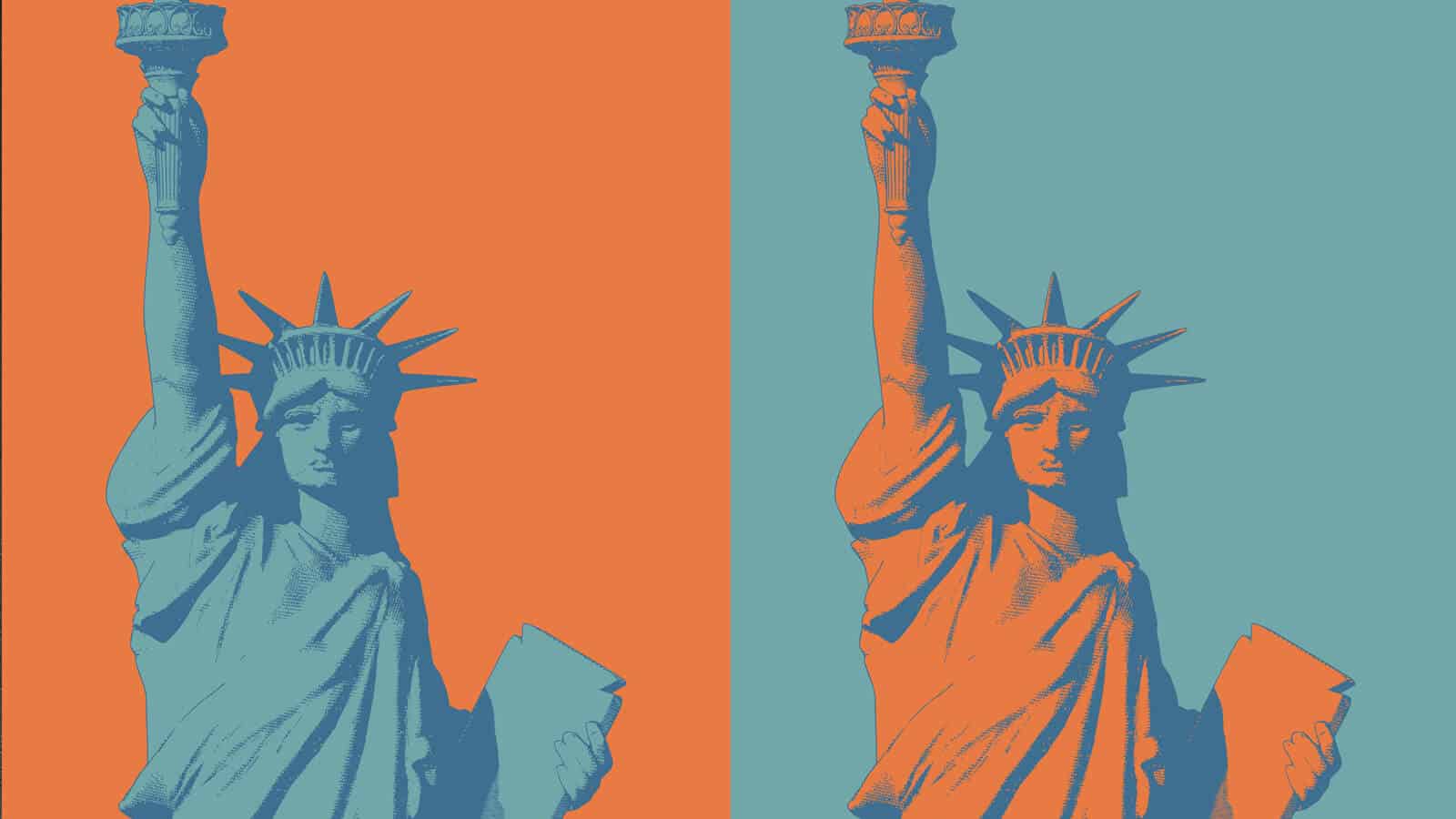n this very special episode of Inhabit, Ryan and I focus on one of the most essential elements of any Integral Life Practice — directly engaging your democratic systems and showing up to cast your vote.
Watch as Ryan and I discuss the following:
- Why it’s never a good idea to base our electoral decisions on the current state of the culture wars
- Why it’s important to differentiate “politics” from “governance”
- Why it’s important to differentiate ordinary people on the left and the right from the social holons of Democratic and GOP political parties.
- Can a person’s political views be used to assess their overall development?
- Can a solidly integral person be a Trump supporter? (Spoiler: of course they can.)
I also offer an in-depth exploration of cynicism — how to recognize it in our own lives, and how we can escape its corrosive influence. We do this by drilling down to a more fundamental polarity — the “trust but verify” polarity, which shows how trust and assumptions of good-faith should be integrated with healthy skepticism and critical thinking. But when this polarity becomes disintegrated and balkanized, it inevitably takes us into the negative poles of naïveté and cynicism. The good news is, by understanding this core polarity we can wrap some healthy guardrails around our own enactment of political reality, and catch ourselves when we feel ourselves sliding toward one of these unhealthy poles.

Why is this important? “Corruption” and “cynicism” are related in many important ways. Many of us feel like our cynicism is a natural response to corruption — why should we trust a system that is so obviously rigged against us? However, the opposite is equally if not more true: it’s not so much that corruption results in cynicism, but rather cynicism creates a vacuum that gets immediately fillled with corruption.
Which makes “escaping cynicism” absolutely paramount right now, as it is one of the most significant obstacles preventing so many of us from fully inhabiting this democracy, making our voices heard, and choosing the deliberately-partial actions and decisions required to move the political pendulum where it needs to go, rather than waiting for the world to catch up with us before we are willing to participate.
Finally, I take a few moments to present my own “3-Point Plan to Save Democracy” — the three most critical systemic changes we need to make in the Lower-Right quadrant in order to restore healthy political enfoldment, de-escalate the culture wars, and rehabilitate our democracy. You don’t want to miss that.
We hope you enjoy this episode! Let us know what you think in the comments below.
Written by Corey deVos
Music by Justin Miles and Stuart Davis
Previous Episodes of Inhabit
Inhabit: Your Awakening
Inhabit: Your Bardo
Inhabit: Your Speech
Inhabit: Your Heart
 Corey deVos
Corey deVos
 March 22, 2022
March 22, 2022
EMERGE — HOW TO THRIVE IN A WORLD GONE MAD
These chaotic times bring us in touch with what matters most, whispers of death and rebirth, as our global life conditions passionately usher us toward all of what could be, of what wants to emerge in your life.
Emerge is a new training program by Ryan Oelke, offering a thoughtful 3-phase process that will empower you to fully inhabit your experience, more deeply relate in real-time to life, and to formulate agile paths of response and action. With this embodied integral training, you will both be more passionately inspired from the core of your being and you will more successfully see the change, experiences, and results you and we long for and need in this moment and in the future.
Learn how Emerge can help you find traction for your transformationAbout Corey deVos
Corey W. deVos is editor and producer of Integral Life. He has worked for Integral Institute/Integal Life since Spring of 2003, and has been a student of integral theory and practice since 1996. Corey is also a professional woodworker, and many of his artworks can be found in his VisionLogix art gallery.
About Ryan Oelke
Ryan Oelke is a co-founder and teacher at Buddhist Geeks and a Senior Teacher of The Realization Process. He has an MSEd in counseling psychology and is contemplative teacher of awakening, healing, and embodiment. He has 20 years experience in meditation, particularly in the Tibetan Buddhist and Dzogchen lineages. Ryan teaches meditation and a way of living dedicated to revealing natural presence and awakening in each moment of our lives, regardless of how it appears to us.






